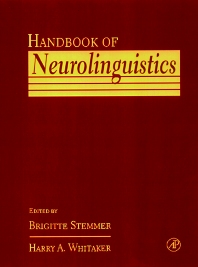Books in Language and linguistics
Books in Language and linguistics
- 1st Edition
- April 3, 2001
- Nicholas P Cheremisinoff
- English
- Hardback9 7 8 0 7 5 0 6 7 2 1 0 8
- eBook9 7 8 0 0 8 0 5 0 2 8 2 3

Condensed Encyclopedia of Polymer Engineering Terms
- 1st Edition
- May 3, 2000
- T.R. Pyper + 1 more
- English
- Hardback9 7 8 0 4 4 4 5 0 4 7 8 4

Elsevier's Dictionary of Cybernyms
- 1st Edition
- Volume 128
- October 29, 1999
- G. Rickheit + 1 more
- English
- eBook9 7 8 0 0 8 0 5 3 6 2 2 4

Mental Models in Discourse Processing and Reasoning
- 1st Edition
- October 22, 1999
- K. Brown + 1 more
- English
- Hardback9 7 8 0 0 8 0 4 3 1 6 4 2

Concise Encyclopedia of Grammatical Categories
- 1st Edition
- August 20, 1999
- B. Spolsky
- English
- Hardback9 7 8 0 0 8 0 4 3 1 6 3 5

Concise Encyclopedia of Educational Linguistics
- 7th Edition
- June 30, 1999
- Rudolf F. Graf
- English
- eBook9 7 8 0 0 8 0 5 1 1 9 8 6

Modern Dictionary of Electronics
- 3rd Edition
- September 1, 1998
- Martha Taylor Sarno
- English
- eBook9 7 8 0 0 8 0 5 2 5 9 0 7

Acquired Aphasia
- 1st Edition
- December 2, 1997
- Harry A. Whitaker + 1 more
- English
- Hardback9 7 8 0 1 2 6 6 6 0 5 5 5
- eBook9 7 8 0 0 8 0 5 3 3 1 3 1

Handbook of Neurolinguistics
- 1st Edition
- August 7, 1997
- Phil Zarrow
- English
- eBook9 7 8 0 0 8 0 5 1 8 2 0 6

Surface Mount Technology Terms and Concepts
- 1st Edition
- December 17, 1996
- K. Brown + 1 more
- English
- Hardback9 7 8 0 0 8 0 4 2 7 1 1 9
